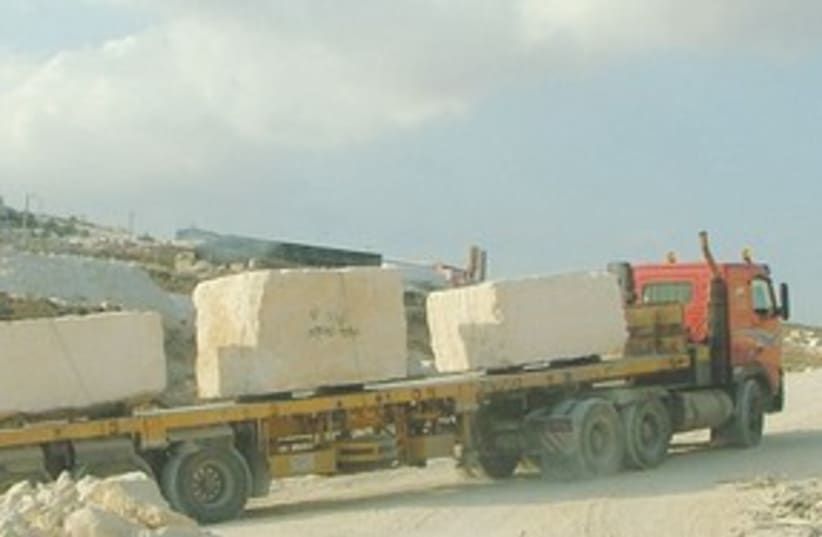Regavim, a nongovernmental group that combats illegal Palestinian construction, petitioned the court last year to halt work at the 1,000-dunam (100-hectare) quarry that it said was being conducted illegally on state land.In response, the civil administration implemented enforcement actions, one in September and two in November, in which it confiscated items including generators, stone saws, compressors, air hammers and 300 gallons of diesel fuel.Regavim said that it first asked the civil administration to stop the quarry’s unauthorized activities four years ago, but that no one heeded its request until it turned to the court last year. It added that it was glad the civil administration had finally enforced the law.Regavim said it planned to continue to monitor the situation to ensure that no unauthorized activity occurred and to prevent any attempts to license the quarry, located in Gush Etzion near the Tekoa settlement.Nearby settlements had suffered from dust and noise as a result of the work at the quarry, the NGO said.Separately, the state on Sunday told the High Court it was drafting a plan to reroute the security fence around the Adam (Geva Binyamin) settlement, 5 km. northwest of Jerusalem.It was responding to a petition filed by Yesh Din – Volunteers for Human Rights against security fences around settlements in the Binyamin region, which it said had been placed illegally and prevented Palestinian farmers from accessing their lands.The state said that the new route should allow the farmers to reach their land and that it would file a plan within 90 days.
Illegal Palestinian quarry near Beit Fajar to close
Regavim, a nongovernmental group combating illegal Palestinian construction petitioned the court last year to halt work at quarry.

Regavim, a nongovernmental group that combats illegal Palestinian construction, petitioned the court last year to halt work at the 1,000-dunam (100-hectare) quarry that it said was being conducted illegally on state land.In response, the civil administration implemented enforcement actions, one in September and two in November, in which it confiscated items including generators, stone saws, compressors, air hammers and 300 gallons of diesel fuel.Regavim said that it first asked the civil administration to stop the quarry’s unauthorized activities four years ago, but that no one heeded its request until it turned to the court last year. It added that it was glad the civil administration had finally enforced the law.Regavim said it planned to continue to monitor the situation to ensure that no unauthorized activity occurred and to prevent any attempts to license the quarry, located in Gush Etzion near the Tekoa settlement.Nearby settlements had suffered from dust and noise as a result of the work at the quarry, the NGO said.Separately, the state on Sunday told the High Court it was drafting a plan to reroute the security fence around the Adam (Geva Binyamin) settlement, 5 km. northwest of Jerusalem.It was responding to a petition filed by Yesh Din – Volunteers for Human Rights against security fences around settlements in the Binyamin region, which it said had been placed illegally and prevented Palestinian farmers from accessing their lands.The state said that the new route should allow the farmers to reach their land and that it would file a plan within 90 days.